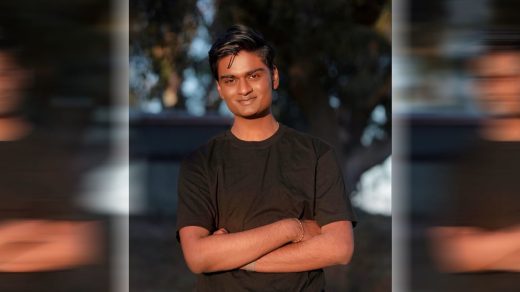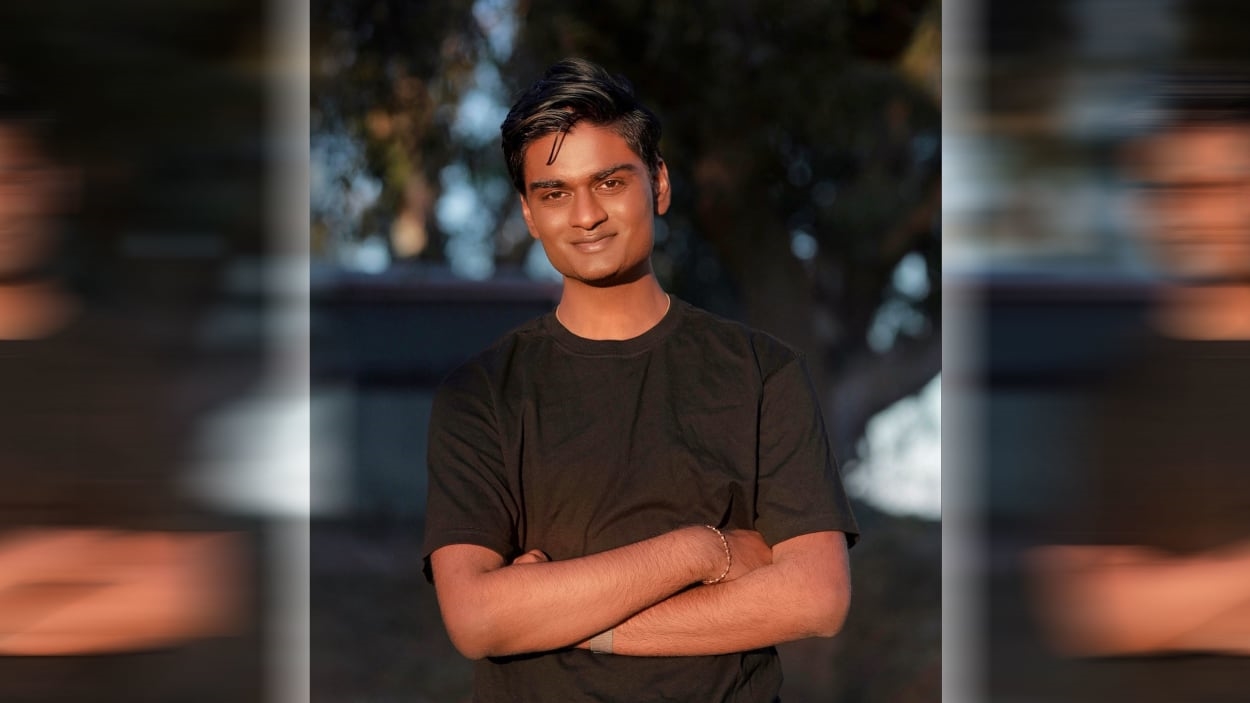L.A. smog hospitalized him as a kid. Now this Gen-Z climate activist is fighting for a cleaner planet
It’s hard to pinpoint when 22-year-old Kevin J. Patel became an activist. Perhaps it started before he was born, when his parents had to move from India to the United States because farming was no longer sustainable and they wanted new opportunities. Or maybe it started in sixth grade when he realized his classmates in Los Angeles didn’t know that food came from farms and the earth, not the grocery store.
Or perhaps he was always an activist, or at least always destined to become one. Regardless of when his activism began, Patel’s his impact is clear. As a teenager, he played a major role in establishing the first youth climate commission in Los Angeles County. In 2019, he launched OneUpAction, a nonprofit aimed at helping marginalized youth advocate for the environment. He’s also collected accolades and earned roles in several organizations, including being named a 2020 National Geographic Young Explorer, a member of Ikea’s youth forum, and serving on the World Economic Forum’s 1t.org’s U.S. Stakeholder Council.
On top of all this, when we spoke for this interview, Patel was just about to graduate from Loyola Marymount College with a major in political science.
Fast Company spoke with Patel about the importance of youth activism. I caught him on his way home from class. Even filtered through the sounds of Los Angeles traffic, the strength of Patel’s care for his fellow humans was palpable. He spent several minutes asking about my cold; after the interview, he wanted to know about who I was as a person. He took care to mention partners and collaborators in his interview—so often, in fact, that we were not able to list all of them.
Patel’s email signature reads: “It is normal for me to take multiple days to read and respond to my emails. The capitalist culture of immediacy is not very compatible with the kind of life I want to live.” It is perhaps this ability to hone in on what matters that’s made him who he is.
Fast Company: You became an activist at a very early age. How did you get your start?
Kevin J. Patel: My parents really instilled it in me at a very young age. They immigrated from India to the United States. Even back then, the farming industry has been deteriorating because of the climate crisis, where there would be continuously floods and heatwaves, and all these other natural disasters. Although they loved India, they had to move because they couldn’t make enough money to survive. Growing up, we grew our own foods, but I lived in a community in South Central Los Angeles that had food injustices and food scarcity.
The first semester of sixth grade, I realized my community wasn’t getting access to healthier foods; I really wanted to do something about it. I started teaching my peers to grow food. Many did not know that food comes from farms and they can grow their own foods.
That all changed the second semester of my sixth-grade year. I’d been playing outside, active, and healthy, and all of a sudden I was hospitalized—I’d been directly impacted by the air and smog pollution. And that led me to really looking at the interconnectedness of all these different issues, from food justice to pollution, and why we have to advocate for many issues and look at justice from an intersectional lens.
FC: How did your activism evolve?
KJP: A lot of the work I’ve done in the past few years has been sparked by the climate change movement. In 2019, we started seeing other young people get passionate climate change. During one of the first strikes in March 2019, I realized a lot of young people were driving two or three hours away from different cities to protest. And I wondered why they weren’t able to protest in their own cities and why they had to drive so far to be heard. I really wanted to do something about it.
I informed the mayor and started a youth council on climate action. He integrated it with the C40, which is a collection of about 90 cities across the globe. My friend Delaney Michaelson and I wanted to take it a step further and tackle L.A. County, which encompasses 88 cities and 13 million people.
I also saw there was a lack of people who look like me within the climate movement, especially the youth climate movement. A lot of the voices that were amplified were those of white and white-passing individuals. I wanted to create a platform for young individuals who were BIPOC. We called it OneUpAction, as in step up your action. But we’ve really transitioned over the past three, four years, where we were not just a platform for BIPOC individuals. Now we’re an organization that is helping young individuals across the globe implement and accelerate solutions with their within their communities.
FC: Why do we need youth activism?
KJP: I’ve seen so many young people come up with solutions that the current generation, and those who are in charge right now, have never been able to create or make. The power of young people is crucially needed.
I also think we just need to intergenerationally work together to really make sure that we’re solving these issues. So it’s not just about young people, but we also have to work with those who have been in the space to make things happen and to accelerate solutions. I’m a big advocator for not just young people but having this intergenerational dialogue to creating change.
FC: You’ve done so much—and you’re still in college to boot. What does a day in the life of an activist look like?
KJP: Well, I’m graduating in two weeks! And I wake up as regular human being, brush my teeth, get ready, you know . . . do all the regular things that people do, and go to school, come back, and spend a few hours on homework and few hours on my nonprofit. Weekends, I reserved that for just fun; I go hiking, I do amateur photography, I run, I hang out with friends. Burnout doesn’t get us anywhere. It’s been a go-go-go mentality for a long time. But I think a lot of the times we forget that we’re humans, and we need to rest and we need to enjoy life. And we need to bring joyous aspects into our life. It’s not about just doing activism; it’s also about making sure that you are taking care of your own body.
FC: What will you focus on once you graduate?
KJP: A really dive deep in OneUpAction’s mission to help young people across the globe to implement and accelerate climate solutions within their communities. Maybe some behind-the-scenes stuff to bridge the gap between businesses and the entertainment industry and media in general: How can we take these huge three sectors and integrate them in the fight against climate change and making stuff happen?
FC: What do you wish people knew about activism?
KJP: Anyone can be an activist, whether you’re a business leader, whether you’re a photographer, whether you [work in fast food]. We all have the ability to use our voices. We all have the ability to advocate on issues that matter to us in our communities. A common misconception of activism is that it’s only for activists or people who have been directly impacted. But I believe that everyone can be an activist, and you don’t have to be perfect. We’re all human after all, right? You have a voice. Use it and be an activist. Go into your community and advocate on any issues you see. Because gradually, that one action will have a trickle effect and create a bigger lasting effect. Everyone has a part.
(13)



